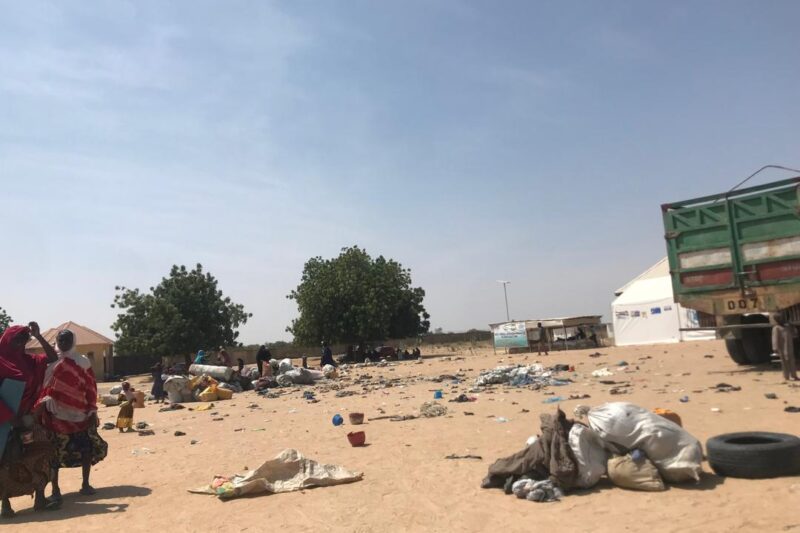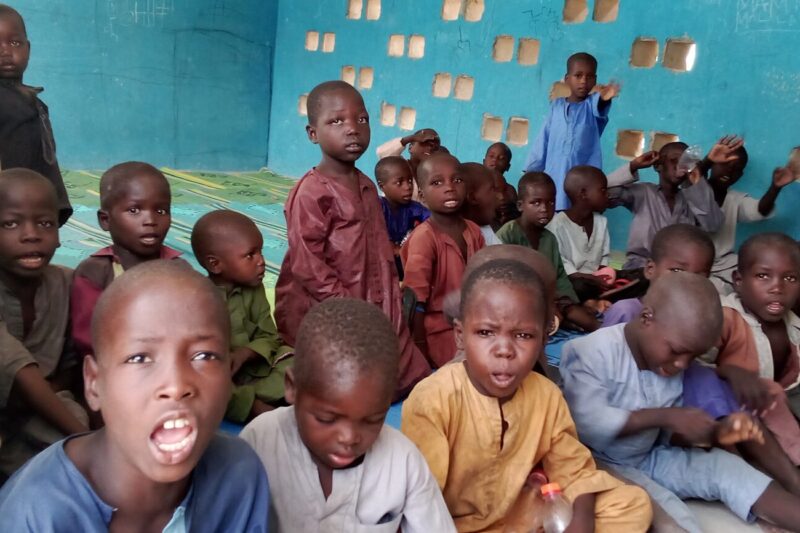Thousands of Nigerians who have been living in a refugee camp in Chad have been repatriated – they will be staying in Maiduguri until it is safe to resettle in their ancestral hometowns.
After almost 11 years of living in a refugee camp in Chad, thousands of Nigerians – mostly Borno State indigenes – have been repatriated.
They are staying temporarily in the Gubio internally displaced persons’ camp in Maiduguri, the capital of Borno State in Nigeria’s northeast, until they can be resettled safely in their ancestral hometowns.
The repatriation began on Thursday, February 6, when Babagana Umara Zulum, the state governor, led a high-profile delegation to Chad to oversee the return of 1,768 families – comprising 7,790 people – to Nigeria.
Zulum said that only those who had voluntarily indicated interest in returning home would be repatriated.
The refugees fled from their hometowns in Borno State at the peak of what is termed the “Boko Haram insurgency”.
They settled in the Dar Es Salam refugee camp in Baga Sola, a town in the Lac Region on the shores of Lake Chad in western Chad.
After years of displacement in Chad, the first group of refugees arrived back on Nigerian soil on Sunday, February 9. They will remain in Gubio IDP camp in Maiduguri until it is safe for them to return to their ancestral hometowns.
Aisha Umar told RNI that she had been staying in Dar es Salam camp for almost 11 years because of the insurgency.
“I was about three or four years old when my family and hundreds of others fled from our hometown. The insurgency was at its peak. There were constant attacks by Boko Haram [Jamā’at Ahl as-Sunnah lid-Da’way Wa’l-Jihād – JAS]. My family knew that if we stayed, we would be killed. We had no choice but to flee.
“We crossed the border into Chad and ended up in the Dar es Salam refugee camp in the town of Baga Sola.
“Now, after so many years, we have returned to Nigeria. We are so excited and happy to be back. Our time in the refugee camp was hard. We are so grateful to the Borno State governor [Zulum]. It’s good to be home.”
Adam Musa and his family fled from Baga in the Kukawa Local Government Area of Borno State.
“I am so happy to be back. I spent almost 11 years in Dar Es Salam camp. If it were not for this initiative, I would still be there. We have just been back a short time. So far, we have no challenges. But we will miss the care we received from non-governmental organisations [NGOs] in Chad.”
Musa told RNI that the Borno State government had organised 14 trucks to transport the refugees from Baga Sola in Chad to Maiduguri.
“The other trucks are still on the way. It took us three days to get to Maiduguri. We went through a border in Chad and in Cameroon. It was quite a journey but we are happy to be home.
Musa said he had returned with his wife, a woman he met and married in Dar es Salam camp.
“All the refugees will be taken to their ancestral hometowns. We cannot stay in a refugee camp for more than 10 years and then get repatriated only to stay in another displaced persons’ camp.
“The governor promised to give us houses and provide the necessary amenities. He told us we would receive aid until we are able to fend for ourselves.”
Yagana Ali Abubakar said: “My father comes from Doron Baga in the Kukawa Local Government Area of Borno State but I was born and brought up in Banki in the Bama Local Government Area and that was where I married. We want to be resettled in Doron Baga.
“We fled to escape the insurgency. We got on a boat and sailed to Chad. We were fearful because we did not know what to expect. We just knew we had to leave our hometown because it was too dangerous to stay there.
“At first, we stayed in a village called Nguba – but later we were taken to Dar Es Salam camp where there were many other Nigerian refugees.
“It was hard in Chad. Many people in the camp did not have any family. Their loved ones were killed in the insurgency.
“At first, I was separated from my kids. I was terrified I would not see them again. But fortunately, I found them in Dar Es Salam and we were reunited.”
Yagana said she had not been to Maiduguri before.
“We were fortunate enough to get a house but we lost all our possessions. Somewhere, somehow all our belongings disappeared during the repatriation exercise.”
Babagana Bukar Modu, the head of the committee in charge of receiving and settling the refugees in Gubio camp, said: “The refugees were received successfully and each family has been given a house. Before they were given the houses, officials captured their data. They were given food and water to drink before they were taken to their new houses. So far, 11 trucks have arrived in Maiduguri. Three more are still on the way.”
AYSHA MUSTAPHA KOLOMI








